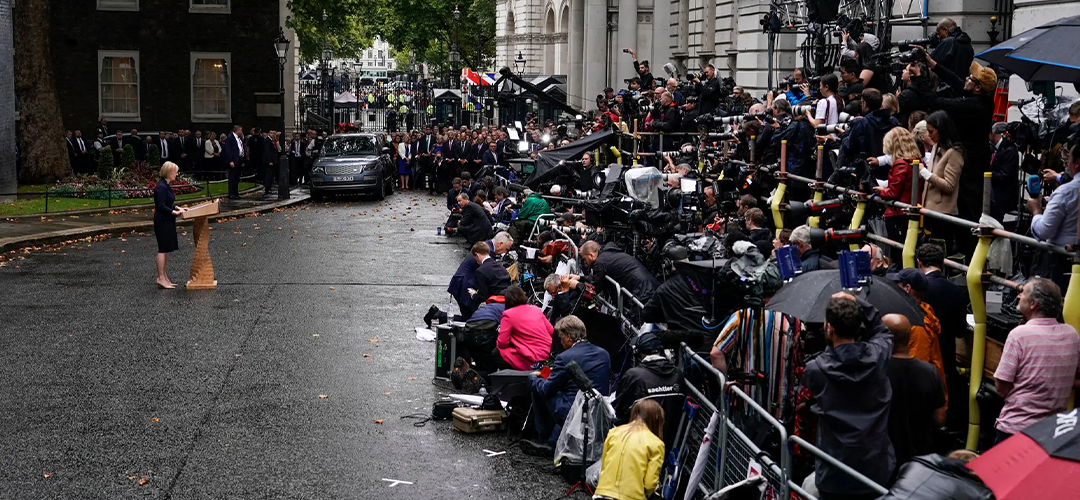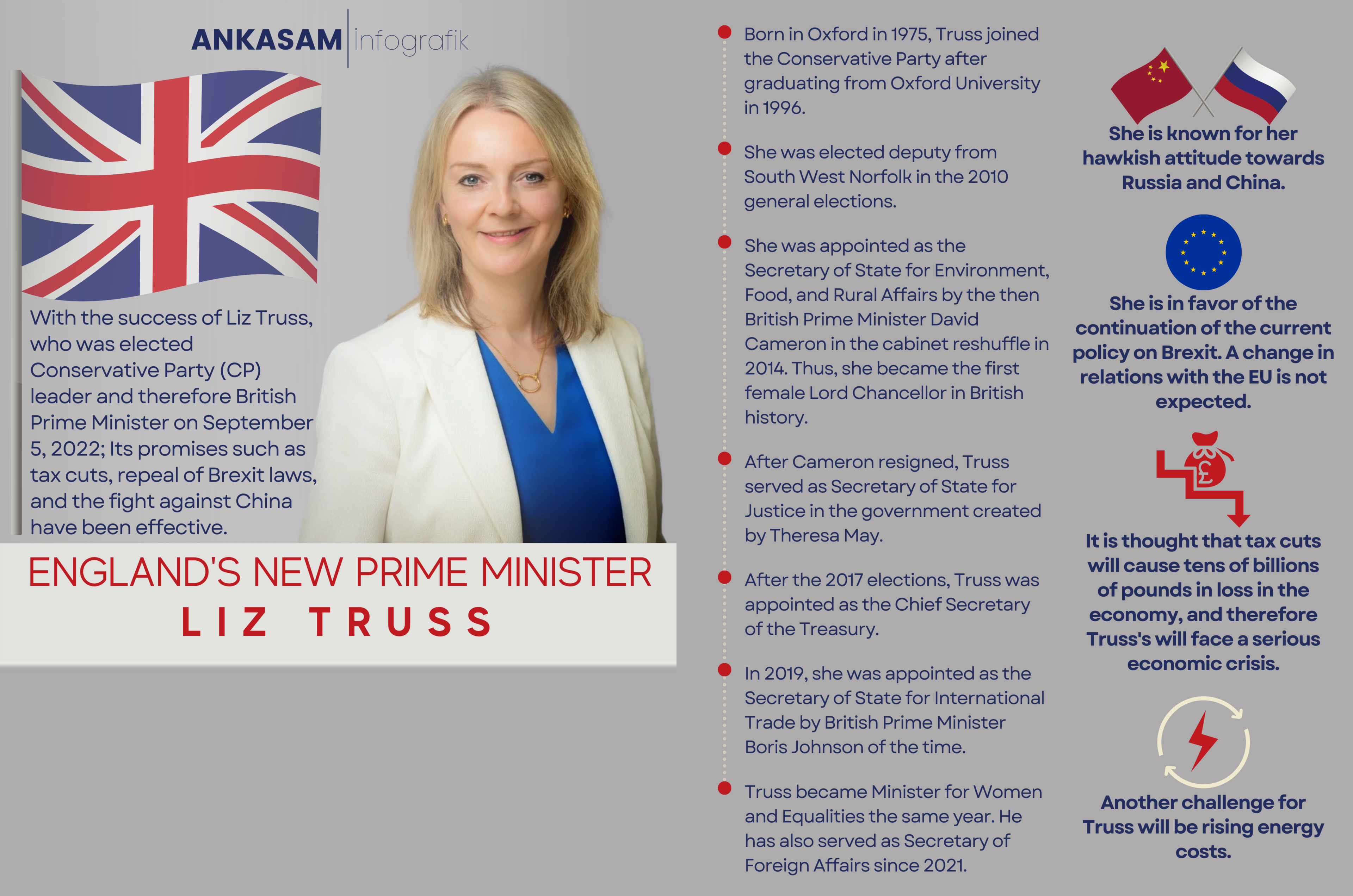A NEW FACE AT NO 10
September 10, 2022 | Expert Insights

A new chapter unfolds in the United Kingdom’s history, paving the way for its third female prime minister, Liz Truss. Ms Truss, throughout her campaign trail, has positioned herself as the modern-day Iron Lady, emulating Margaret Thatcher. The latter also took over Downing Street in 1979 at a period of comparable economic distress.
Background
Despite being raised by left-wing parents and having formerly belonged to the Liberal Democrats, Liz Truss is frequently viewed as on the Conservative party's right.
Truss was one of David Cameron's "A-List" candidates and eventually won election to the House of Commons in 2010 after two failed efforts. Truss was elevated to the position of Education Minister in 2012 and became the Environment Secretary in 2014. Truss eliminated solar farm subsidies in this capacity, branding them "a blight on the landscape."
Following Cameron's resignation in 2016, Theresa May appointed Truss to the dual roles of Secretary of State for Justice and Lord Chancellor, making her the first female Lord Chancellor in the position's history. She was named chief secretary to the Treasury once more in 2017.
Truss held the critical position of organising post-Brexit trade agreements with third-party nations during her tenure as international trade secretary between 2019 and 2021. Until September 15, 2021, she served as secretary of state for foreign, Commonwealth, and development affairs.

Analysis
Ms Truss rose to the head of her party and now the premiership, thanks to her ability to continue to reinvent herself. As her premiership unfolds, after only 48 hours in the office, she has already changed her stance on some issues, disappointing some of her supporters. While it is true that it is impossible to win over everyone in politics, all the time, a Prime Minister cannot look good if he/ she is frequently changing her stance.
After the 2016 referendum, an erstwhile Liberal Democrat and Remain supporter, Ms Truss wholeheartedly embraced Brexit and emerged as one of its most enthusiastic proponents. She strengthened her Brexit credentials while serving as foreign secretary in Johnson's administration by taking a combative posture against the European Union. Even though the UK has severed ties with Europe, the Brexit debate has grown to become a divisive domestic political and cultural issue. Truss is the epitome of this, which tells a lot about her potential as a leader both within and outside the European Union.
Truss faces many challenges, such as the confrontation between ideology and practice. The massive spending package she unveiled as prime minister to restrict power prices for consumers at the taxpayer's expense may have characterised her upcoming term. Her discussions (and promises) on tax cuts may end up costing the Treasury as much as £200 billion ($230 billion) over 18 months.
She may try to prove her Thatcherite credentials by enacting some significant free-market reforms. On paper, it seems like a scheme that would make many Tories uneasy. The debt and deficit will rapidly expand due to this direct government intervention in the market, and the potential liability may become unbounded.
Her second obstacle is the " delivery " issue: The party has a terrible track record of making significant promises but failing to follow through on them. Truss has pledged to bring about development through, among other things, enhancing education and upending conventional wisdom in the Treasury. For decades, UK governments of all hues have made this commitment but have fallen short.
The third is the next general election, which will happen very soon. Many claim that the voting blocs that helped Johnson win in 2019, older, wealthy southerners and poorer, working-class northerners, are eroding. The standard-of-living crisis and the overall impression that the nation is "coming apart" have driven away perhaps half of the working-class voters from the party. Moreover, the expected reforms in the healthcare system and law and order haven't materialised. Even though Truss, unlike Thatcher, does not have council houses to sell or companies to privatise, she must show that her revitalised Thatcherism can significantly improve the lives of the "merely coping."
Assessment
- When the pound is hitting fresh lows against the dollar, and the energy scene is getting grimmer, Prime Minister Truss is in a difficult situation. Moreover, with the left controlling the public sector, to govern as a conservative is like trying to “sprint up an escalator while it's going down”. What she needs to tide over the immediate situation till elections bring over a fresh mandate is a qualified cabinet with a record of completing the job. Sadly, there are no such faces in her cabinet right now.
- BREXIT and Ukraine were two areas where her mentor, Johnson, could claim a degree of success. Truss has to build up on this momentum, and she can be assured of the unstinting support of Washington in this account. However, the political minefield will be the domestic economic situation for which there is no quick-fix solution.
- The best Ms Truss can hope for is to tide over the economic situation through short-term measures to prevent it from worsening so as not to diminish her chances of re-election at the hustings whenever parliamentary elections are called for. A poor performance at this juncture could expose her to her rivals waiting in the wings.








Comments